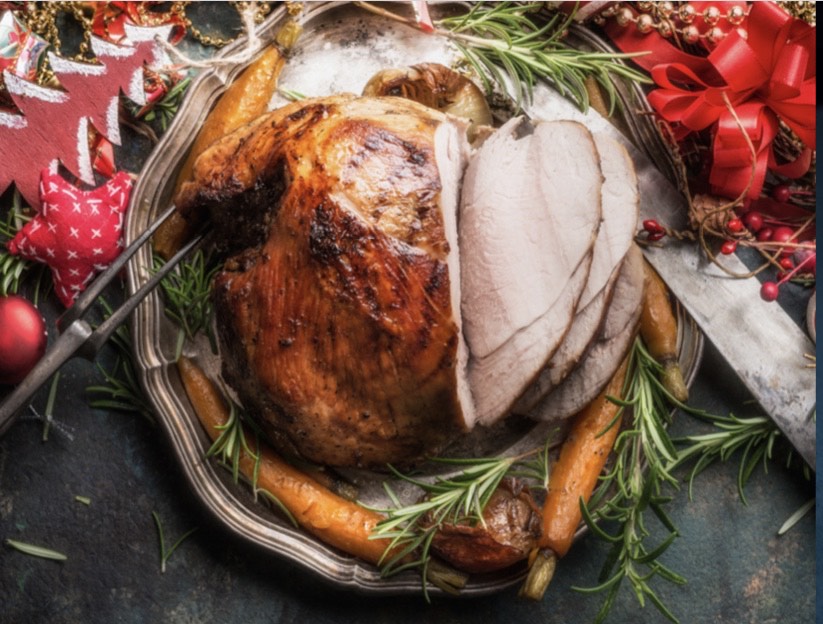Cooking a turkey, the quintessential, holiday centrepiece, can cause the most expert of chefs to cry “fowl.” Under-cooked, over-cooked, sometimes both at once – cooking a turkey properly is more difficult than just throwing it in the oven and hoping for the best.
To help our readers roast the perfect birds this holiday season, Avenue asked chefs Blair Lebsack and Shane Chartrand for their top turkey tips.
From Farm to Table
When the fresh, wild turkey from Dirt Willy’s Game Farm & Hatchery arrives at Chef Blair Lebsack’s RGE RD restaurant, he inspects the bird carefully to ensure all the bone and skin is intact. “It’s something that when you buy a turkey frozen, you can’t do,” he says.
Next, he prepares the brine. In a giant bucket, he mixes eight litres of hot water with 500 millilitres of salt (roughly four tablespoons for every litre of water) and adds a touch of honey. Setting the bird in the brine, and the bucket in the fridge, he leaves the meat to soak up the moisture for over six hours. “Too often, turkey seasoning stays on the surface,” Lebsack says. “Brining helps it absorb the flavour throughout.”
Lebsack’s Turkey Tips
Careful with your salt!
Don’t add too much salt to the bird during the cooking phase because it will pull the moisture out of the bird, leaving it dry.
Let it rest.
“People fuss too much about timing the bird to be finished cooking exactly as people are gathering to eat,” says Lebsack. He recommends that after the turkey is cooked (use a meat thermometer to tell), let it rest for at least 45 minutes to two hours to further absorb the juices. To retain the heat, cover it with a towel and heavy foil, then forget it as you mash potatoes and stir gravy.
Buy birds with the freedom to roam.
“Turkey breast texture is at its best when you can see what direction the meat is running,” says Lebsack. Turkeys from small farmers that allow their birds space to run tend to always have this. Lebsack recommends trying a bird from Four Whistle Farm or other local, small producers.
